Cruising the Kerala Backwaters: Laziness as Coping
- Rand Blimes

- May 8, 2025
- 5 min read
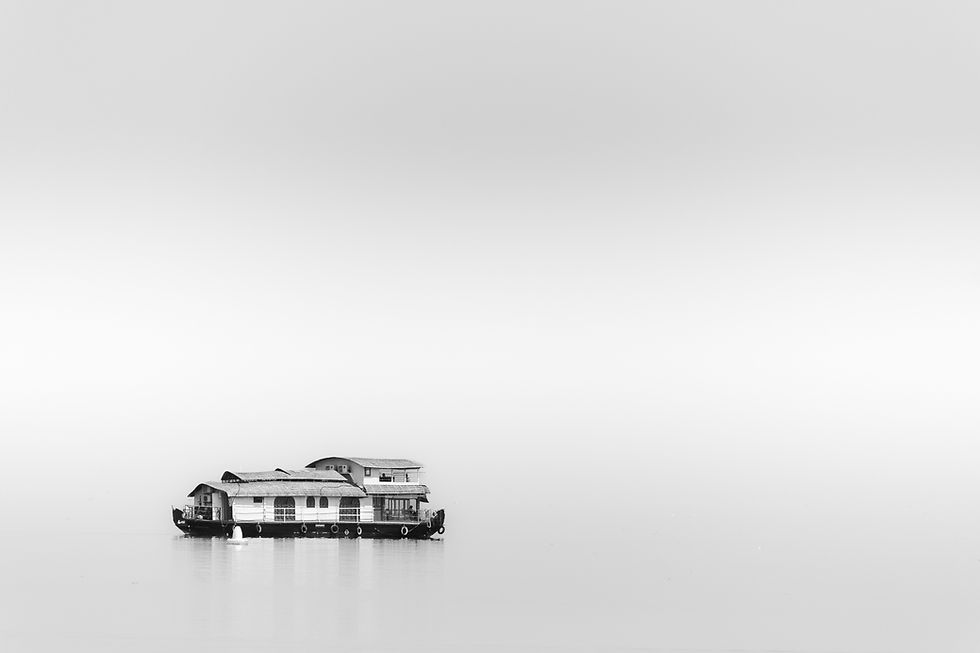
What can I say about cruising the the Kerala Backwaters? It is possibly the most sublime way to do absolutely nothing that I know.
The backwaters are a system of interconnected rivers, canals, and lakes in the Indian state of Kerala. The thing you want to do here is hire a houseboat. For a few days. For a week. More . . . if your tolerance for the excruciating contentment of lazing about will allow.
For centuries, the backwaters have served as the arteries of commerce and daily life in Kerala. Before roads penetrated the region, these interconnected canals and lakes were how people got from one place to another, how rice moved from paddy to port, and how entire communities connected across a watery web.
The houseboats themselves are descended from kettuvallams—rice barges once used to transport grain. Today, many of these vessels have been retrofitted into floating tourist magnets, complete with bedrooms, bathrooms, and kitchens, while still gliding along routes that villagers have used for generations.
Some are floating palaces.
Some are floating evidence that duct tape is waterproof.
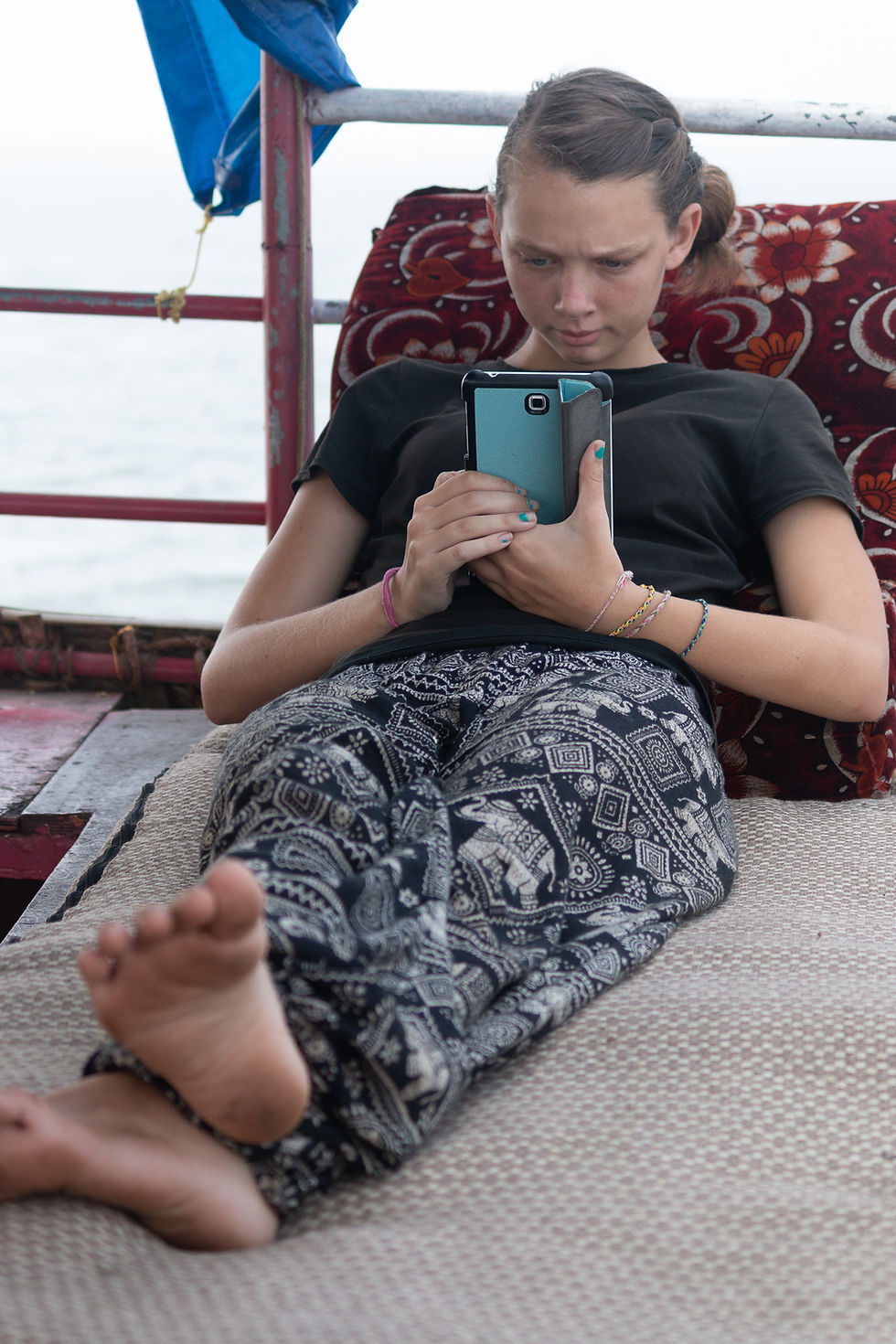
A trip through the backwaters starts in the city of Aleppy.
Any taxi driver, or tuk tuk tout can show you the way to the dock where the boats are. You may even be approached on the street, where everyone’s cousin seems to have the best boat in Kerala. And they can make a fantastic price for you! If you are unlucky enough to find a tuk tuk driver that doesn’t know the main boat dock, ask to be taken to the Ramada Hotel, it is right by the main dock.
Walk down towards where the boats are moored and someone will approach you. Tell them what you want, and how long you want to be on the boat. If you have specific food requests, tell them that too (and they will ask you if you want vegetarian, or non-vegetarian meals).
We told the man who came out to greet us that we wanted a boat that could sleep five, with air conditioning in the rooms, and an upper deck with furniture appropriate for lounging during the days. We asked for vegetarian meals, and we wanted to do two nights/three days.
Our man gave us an enthusiastic “Indian head bobble” and proceeded to show us a variety of boats, most not even close to what we asked for.
Eventually, after several enthusiastic but questionable pitches and one brief detour to a man who insisted his boat was shaped like an elephant (it was not), we made our choice. We bargained over the price, and settled on ₹22,000. We got the specifics in writing, paid a deposit (and got a receipt), and were told to be back the next morning.
We ended up pretty happy with our boat. The showers never got hot, but cold showers were totally fine given the heat.
Just remember that picking a boat is 7.3% shrewdness, 12% timing, and 99.9% sheer luck. Do your best to get the boat you want, and remember that it will never be entirely within your control.
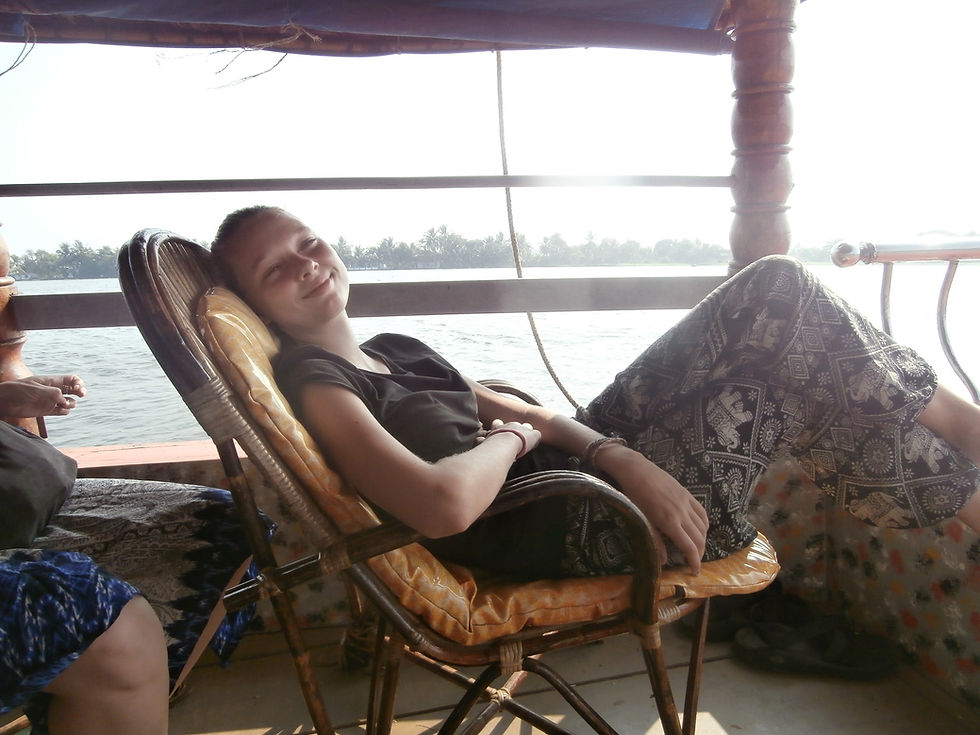
Once you are safely on your boat . . . learn to do nothing.
There are no rapids on the Kerala backwaters. No rope swings. No water slides. The scenery is much the same throughout the journey: rice fields. Palm trees. Villages. Daily life.
There is nothing much to do, and that is a good thing, because it is likely too hot to do anything anyway.
I found myself a spot on the deck, where the breeze from the motion of the boat almost cooled me down a bit. Almost. But not really.
The trick was to move as little as possible. When moving was absolutely essential, we moved slowly. Carefully. No expenditure of heat-generating kinetic energy beyond what was necessary.
It was laziness as coping.
The landscape seemed to conform to this notion as well.
On our second morning, the boat pulled into a large lake. In the dawn haze, I couldn’t see the edge of the lake. I couldn’t see the horizon. Other houseboats seemed to hang, suspended in a dense stillness that hung over the whole scene. A stillness you could almost feel . . . like it would resist your trying to move through it . . . if you could be bothered to move at all.
Birds seemed to be the only things with the courage to exert themselves in this place. They flew down to the water and landed on the lake. It was so quiet; I could hear the sound of each beating of a wing. I could hear it, as each landing bird drug its body across the surface of the lake.
If you can imagine a scene so still, so peaceful, that the sound of a bird alighting on the surface of a lake, will fill the entire scene with its sound, you will know the peacefulness of a morning in the Kerala backwaters.
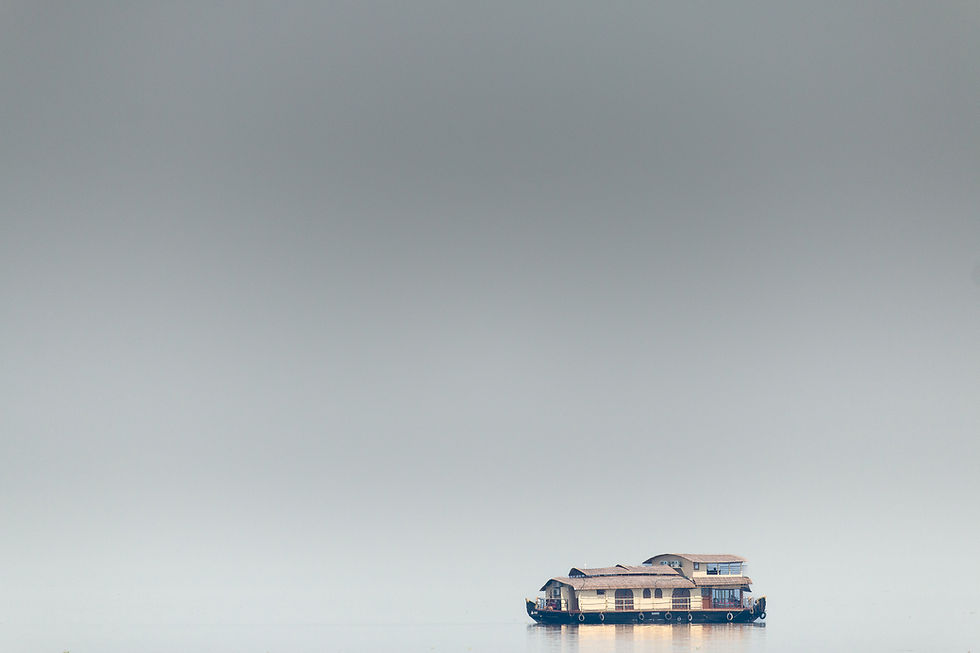
Life Along the Water
But even in the stillness, life pulses. Slowly. But steadily.
Life doesn’t just pass us by—it drifts. It ripples. And occasionally, it stares back.
A woman squatted at the water’s edge, rhythmically pounding her laundry against the stone steps, her sari tucked up with utilitarian flair.

Nearby, a canoe piled high with freshly cut greens from the river floated past, the bow weighed down by a young woman who looked as unimpressed with the world as any teenager the world over. Behind her, a man poled the boat forward with calm precision while another rested in the reeds, half-obscured by the greenery.

In another narrow canal, an older man sat low in a wooden canoe, paddling himself along with the kind of casual dignity that suggested he’d been doing this since before most boats had motors.
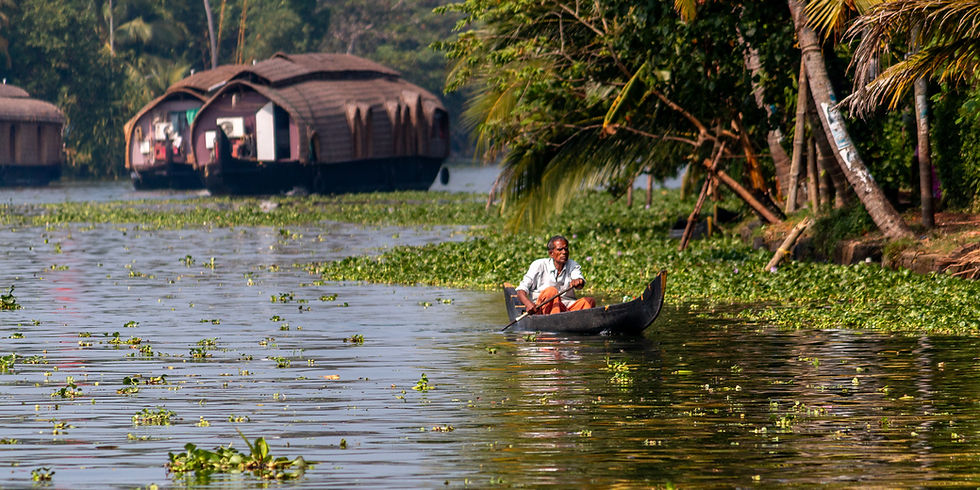
None of them seemed in a hurry. No one ever does on the backwaters. They didn’t perform for tourists—they just lived. And we got to glide quietly through their world for a little while.
I settled back into my place on the deck. I tried to read my copy of Midnight’s Children, as this seemed the perfect setting to do so. But even reading seemed too much work. All that eye movement just felt out of place in the backwaters.
So I settled into simply watching the scenery slip by. Slowly. Lazily. Perfectly.
Because travel doesn’t always mean doing something.
And someday, I promise, I will finish Midnight’s Children. But not here. Not in this place where even turning a page feels like an act of rebellion against the sublime stillness of just being.



Comments